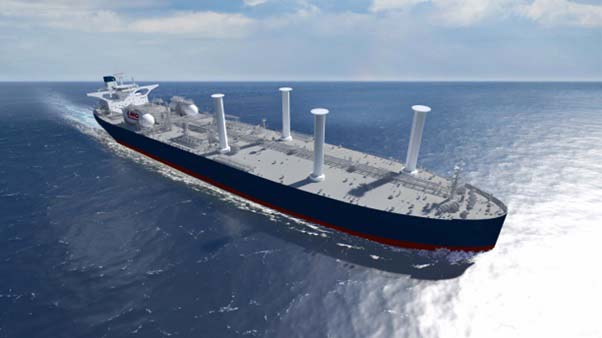In a first of its kind for Korea, Korean Register (KR) has awarded design approval for Hyundai Heavy Industry (HHI)’s latest rotor sail technology ‘Hi-Rotor’.
With this wind-assisted propulsion system installed onboard, ships can reduce their fuel consumption and carbon emissions by 6% to 8%. The approval follows a close partnership between KR and HHI. In December 2020, KR issued an Approval in Principle for ‘Hi-Rotor’ as a first step to actively developing the revolutionary technology. This May, both companies collaborated in hosting a Hazard Identification (HAZID) workshop, to further enhance the safety of the system. HHI is planning to complete the production in the second half of this year, and is concentrating on preparing for a feasibility test, as well as discussing the future commercialisation of the system with major ship owners.
Rotor sails are cylindrical structures installed on ships’ decks that reduce fuel consumption and carbon emissions by generating additional propulsion using wind. HHI’s ‘Hi-Rotor’ features the Magnus Effect, using the pressure differences around the rotor sail to generate propulsion. However, it significantly differs in enhanced stability of the drive system, compared to other products, by applying the reduction gear method to the driving part that connects the electric motor and the rotor.
Yeon-tae Kim, EVP KR Technical Division, said: “We hope that this design approval will enhance HHI’s competitiveness in the rotor sail technology market, and we will continue to enhance our compliance with stringent environmental regulations.”
Won-ho Joo, HHI Senior EVP and CTO said: ” We are continuously contributing to strengthening the competitiveness of our customers by concentrating our capabilities on the development of various eco-friendly products to not only improve the fuel efficiency of ships but also to respond to stringent environmental regulations.”



